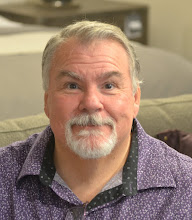Adelaide was a smart, funny, active woman who spoke and taught several foreign languages. This is woman who raised a family, worked, volunteered, traveled, belonged to many fraternal organizations and still found time to host "the girls" for tea and bridge. She loved life. She loved her family. She loved people, especially her former students.
When my mother retired from teaching she was on top of her game. At sixty-two she was vital and bright. She even went back to teaching one or two classes a day for a while.
odd things happen
We were driving down the Garden State Parkway heading for the New Jersey shore and in the middle of a conversation she switched languages and for a few seconds she spoke to me in French. I teased her. We laughed it off. After forty years of teaching languages it wasn't odd for her to drop in some foreign words. Except she never did that.
One by one she was opting out of attending her clubs and meetings. She was becoming increasingly tearful and argumentative. She had fewer and fewer desires. Finally after much arguing I got her to a doctor for a checkup. The doctor recommended a psychiatric evaluation might be in order. After a couple more weeks of arguing I got my mother to agree.
The psychiatrist was a lovely young woman who saw patients in her home office. A major life-change such as retirement can often trigger depression and so my mother was diagnosed. She would be treated with anti-depressants and be "back to her old self in no time". For two years we would have bi-weekly therapy and my mother would have her medication evaluated.
Time after time the doctor would change my mother's medication in hopes that some other potion would be the magic one. Meanwhile my mother's condition was deteriorating. Now she was repeating herself, misplacing items, becoming unkempt and all while in a medicine induced fog.
Finally Prozac was introduced to the market. The doctor decided to try it on my mother. It worked!
We had finally found that "magic potion".
My mother was returned to us. It was a few days before Christmas and my mother was happy and excited about the holidays. She was conversational again. I remember thinking this was the best Christmas present I had ever gotten. It really was a Christmas miracle.
The full benefits of the drug began to fade and within a few weeks it was apparent that we had only been given half a miracle. While my mother's demeanor was much improved and the tears and the arguments were gone, the forgetfulness and repetitiveness returned.
We went on this way for a couple more years. My mother's personality had returned and for that I was grateful. All of her other symptoms slowly worsened. There was an hourly search for her misplaced eyeglasses. There was an endless verbatim retelling of old stories. Words would escape her during conversation. I guess this happens as a normal part of aging?
The lovely young psychiatrist was about to have another child and was divesting herself of patients so I found another doctor for my mother.
Shouldn't a mental health professional be able to be honest without being cruel?
I took my mother to the new therapist. She was a gruff, disheveled woman in her early sixties. She had my mothers medical records in front of her and within 3 minutes looked at me and said "your mother has Alzheimer's disease" which I think she followed with "there's nothing to do for her".
I was grateful to have a diagnosis but I was also stunned by both it's implications and the doctor's manner. I don't think you should be thrown a blow like that and then dismissed with neither information nor hope.
This was nearly two decades ago. Alzheimer's disease was rarely heard of. I had some idea of what it was but now I embarked on educating myself. This has been a twenty year, on-the-job internship. Now I'm an "expert".
In many ways ignorance really was bliss.
The more I learned about the disease and what I could expect from it's progression, the more frightened I became. I had some cries and some self-pity sessions and then I found my inner resolve to do the best I could with whatever I was going to be faced with. I understood it was going to be a difficult challenge but a challenge I was willing to accept.
It has been a long, slow downward progression for my mother. We went through many phases of the disease. None was pleasant. None was easy to accept. None could be avoided.
Today Adelaide is bed-bound having faced enormous obstacles. She is happy, comfortable and sweet. There is an unmistakable grace and charm that she has maintained. Her smiles are a generous gift to her family and friends and we treasure each one she gives us. She is still an incredibly strong woman. She has an indisputable will to live. Approaching ninety, she even survived a six month stay on Hospice.. She was removed from the program for having recovered from her health problems.
When Hospice pulled out of our home I made a t-shirt for my mother which proudly proclaimed "I survived Hospice"!
















